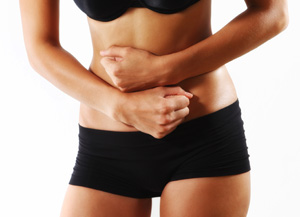Severe Indigestion
 Severe Indigestion: How To Avoid It, And How To Treat It
Severe Indigestion: How To Avoid It, And How To Treat It
First of all, the cautionary statement must be made that the presence of severe indigestion can mirror or be a symptom of a heart attack, so if yours is recurring or is accompanied by any numbness or pain in the back, neck, jaw, chest, or either arm, you will want to have yourself checked out as a precautionary measure. It can never hurt to be your own best health advocate, so don’t feel embarrassed if it is a false alarm. Once heart attack symptoms have been ruled out as a possible cause for your severe indigestion, it will be time for you to start monitoring your stress and food levels, as well as the amounts and the times at which you choose to eat. Many cases of indigestion can be cured simply by moving meals back a few hours from bedtime, which we should do anyway, and by eating less than our normal servings.
Severe indigestion is most often caused by the overfilling or quick expansion of the stomach, as when we have eaten far too much or far too fast. This causes not only undue and heavy pressure at the abdomen, but causes the stomach acids to rise over the threshold between the top of the stomach and the bottom of the esophagus. This often gives the feeling of intense burning all the way up to the back of the throat. This can last for many hours, or as long as it takes for the stomach to sort out, break down, and properly digest the vast amounts of food that it had been handed.
Severe indigestion can also be caused in those who have stomach ulcers already, though the pain in the stomach is bound to be much more sharp and agonizing with these types of open sores present. You may be inviting severe indigestion if you are a frequent heavy eater, as your stomach has too little time to recover between large meals and the acid overflow will be aggravated consistently. Forcing yourself to eat when you are not hungry or are already full can also intensify your aptness for severe indigestion.
Be careful about the foods that you choose to eat as well, and this rule applies to everyone. Severe indigestion can be the first symptom of food poisoning after the consumption of rancid, rotten, or unclean foods. You will need to watch carefully for faintness, nausea, vomiting, headache, cold sweats, and chills, accompanied with severe pain and/or diarrhea; you will need to seek medical attention right away. Dehydration is the leading cause of death with food poisoning and food borne illness cases, so take good care not too lose too much bodily fluid before getting help.